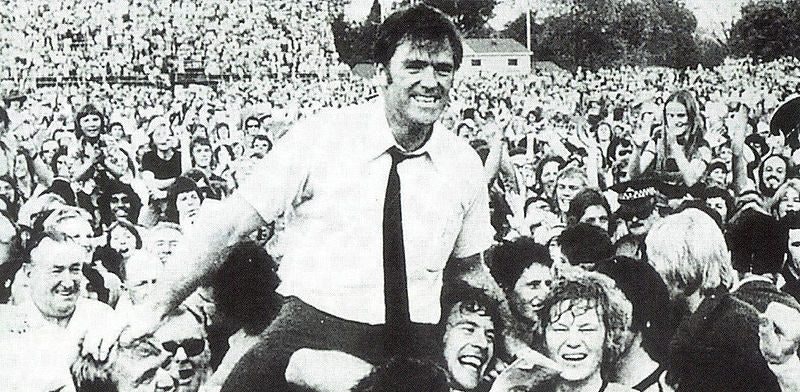
Vale Neil Kerley – King of the Bay
RIP KING KERLS
By Peter Cornwall
Glenelg Football Club is in mourning after the passing of club legend Neil Kerley.
Kerley, who died on Wednesday in a car crash near his Walker Flat home, aged 88, earned the highest honours the club can bestow as a Great of Glenelg and a member of the club’s Hall of Fame.
In the Tigers’ 101-year history, no single person has had a bigger impact than Kerley – affectionately known as Kerls, Knuckles or the King – who transformed the Tigers from being regarded as more-or-less a social club into one of the strongest, most respected football clubs in Australia.
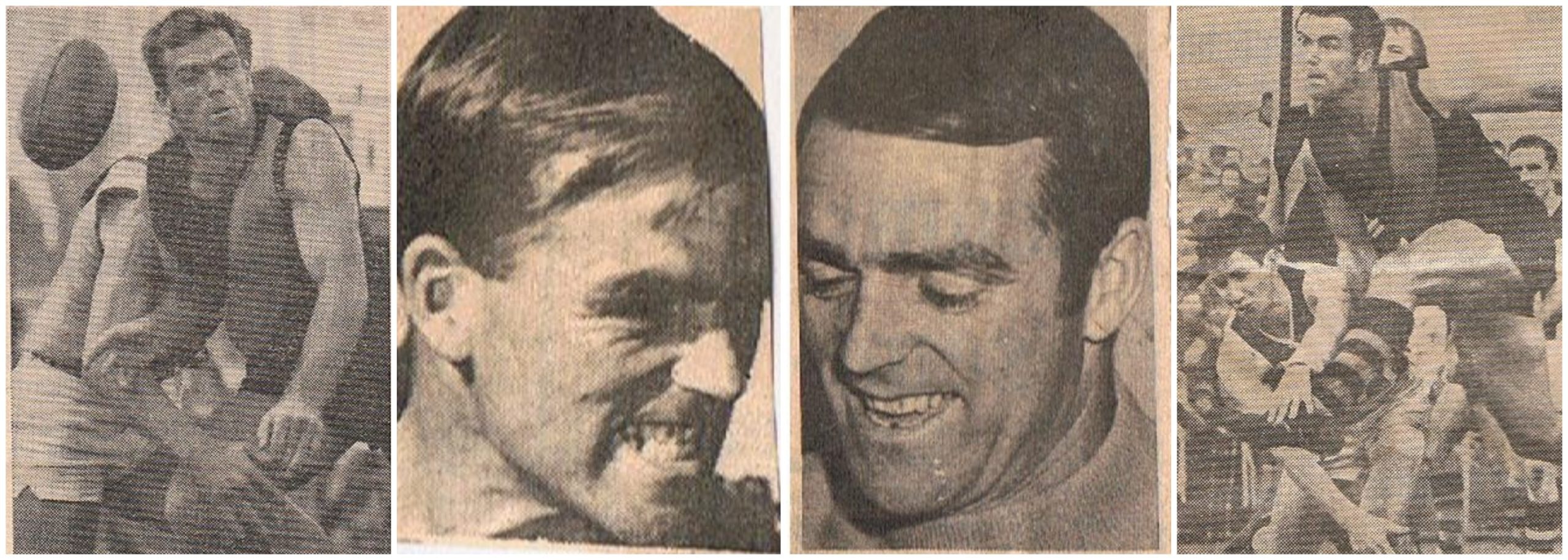
When he took on the role as captain-coach in 1967 he brought about an immediate shift of the club’s culture and standing, creating a legacy and setting new standards and trademarks that were to continue well after he left and are still a cornerstone on which the club has grown. In proteges of his, current president Peter Carey, long-serving skipper Peter Marker and dual premiership coach Graham Cornes, Glenelg had leaders who continued the tradition. Like Kerley they were strong. Also like Kerley, they have always been approachable, admired, respected and loved by Glenelg people.
A master story-teller who kept audiences spellbound, Kerley and much-loved wife Barb regularly continued to attend Tigers functions and matches and Kerley invariably declared how much he and Barb had enjoyed their decade at the Bay. Kerley was a highly-feted guest at last year’s centenary Hall of Fame dinner at the Stamford Grand at the Bay.
When Kerley arrived at Glenelg, it could hardly have been at a lower ebb. But Kerls loved it that way. The Tigers had just claimed the wooden spoon, they hadn’t made a grand final in 17 years, hadn’t won a flag for 33 and had only won one final in the previous 14 seasons. Kerley thrived on challenges. “I liked going to bottom clubs because you started from scratch, you laid the foundation and you tried to build a good house on it,” Kerley said. “If you go somewhere where they are reasonably successful, you’re doing a patch-up job.”
Kerls knew how to turn a club around, having lifted South Adelaide from bottom to top in a spectacular rags-to-riches triumph in 1964. And he had coached West to a flag in his first year as captain-coach in 1961.
“First night … it happened,” Fred Phillis recalled of the shift in standards that turned around the club’s flagging fortunes. Kerley took 100 young hopefuls on a “pretty brutal” run from the club to the beach and back, including a torturous swim, and he quickly found out who was fair dinkum or not.
Kerley lifted Glenelg straight into the finals in 1967 but Port Adelaide was too tough and finals hardened in the first semi-final. By 1969 Glenelg had won the first minor premiership in its history and the Bay was abuzz. There were massive crowds – a record 17,171 fans packed the ground for the huge clash against Sturt in 1968 – and an abundance of superstars in a line-up that played attractive, attacking footy and regularly kicked big scores, all trademarks of Kerley’s coaching.
As an on-field leader, you couldn’t get better than Kerley. Totally fearless and always dedicated to winning the hard ball and the football match, Kerley also was a talented player who twice finished in the top three for the Magarey Medal. As a coach he expected the same fanatical desire from all his players, first being thrust into leadership as a 19-year-old captain-coach of Koolymilka, near Woomera, guiding his team to the premiership.
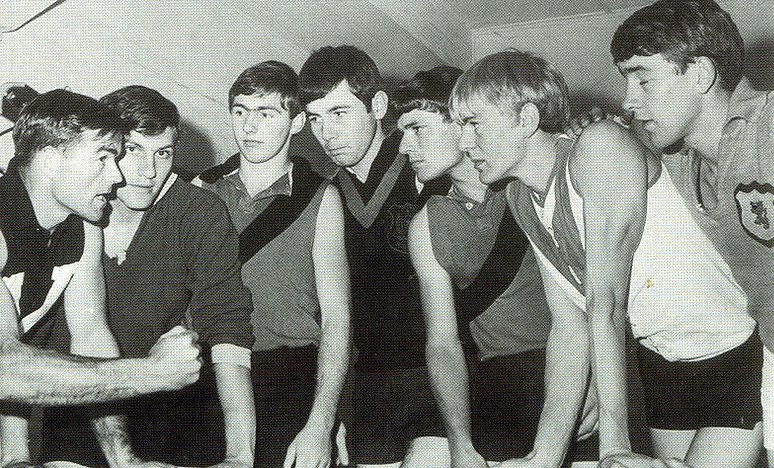
Neil Kerley instructs players prior to the 1967 first semi-final against Port Adelaide, 1967. Players (from left) Terry Gunn, Kerry Hamilton, Peter Marker, Rex Voight, Graham Cornes and Ken Smith.
His determination and toughness was out of this world. Kerley tried to shrug off a crunching blow he took to the head at the Bay in 1968 against Central District. At the half-time break he was told his lower jaw was broken. “He couldn’t speak to us – we just knew he was in trouble,” Cornes recalled. But Kerley led his charges back on to the field and played as powerfully as ever.
“I went in at half-time and I said ‘gee, I reckon there’s something wrong with my jaw, it just doesn’t feel right’. So our dentist Cec Maddern looked at it and he said, ‘it’s broken’. I said, ‘is it a little break or a big break?’ He said ‘it’s just a little one’. I said to Laurie Rosewarne ‘get a couple of packets of chewies off the head trainer and chew them up for me’. Laurie got the chewies and chewed them up… and they were my mouthguard in the second half.” The Advertiser’s Merv Agars wrote of Kerley, playing with his jaw held together and ‘protected’ by a ball of half-chewed gum: “He gave opponents and spectators not a hint of his injury as he tore into and through packs and pulled down strong marks.”
Great of Glenelg and Hall of Fame inductee Rosewarne said Kerley changed his life. “I knew he was coming, trained my guts out, I was only 19 and he came to the club with a passion to make us better and he really changed our club,” he said. “We owe a lot to Neil Kerley.” Great mate Ken Eustice, who took over from Kerley as Tigers skipper, said: “He was a great encourager. He could also give you a blast but he wouldn’t knock you. He was a unique inspiration and he was strong, fearless … his aura and his energy, you could feel it.”
Kerley retired as a player after the 1969 grand final loss to Sturt and had to change his style as a coach who could inspire his players with his words rather than his courageous deeds on the field. It took a little time to get it right but Kerls continued to make Glenelg a force and, by 1973, the club reached heights it had previously thought unattainable. The Bays lost just one game in an epic season and won what is remembered as possibly the greatest grand final of all, against North at Adelaide Oval.

Neil Kerley celebrates at the 1973 Grand Final v North Adelaide
Kerley coached Glenelg for 10 seasons for a premiership, five grand final appearances, a third placing, a fourth, fifth and two sixth placings. Nine of his club-record 10 seasons in charge were winning ones, with 1971 (nine wins and 12 losses) the only exception. In premiership games Kerley had a superb overall record of 142 wins and 81 losses. Those figures are made to look even more remarkable when you consider in the 10 seasons before Kerley’s arrival, the Bays won 68, lost 123 and drew two.
But Kerley was a hard taskmaster, including on himself. “From five grand finals we only won one – it’s not a great success rate,” he said. “But when you think about it, in the 10 years we played in five grand finals, so it was a good achievement.” He admitted pride in the fact “they went from I guess you’d nearly call it a social club into a respected and feared club on the footy ground. The foundation had been laid and all that was needed was good, sound administration and the club would continue to be successful.”
Glenelg wouldn’t be the club it is today without Neil Kerley. We owe Kerls a huge debt of gratitude.
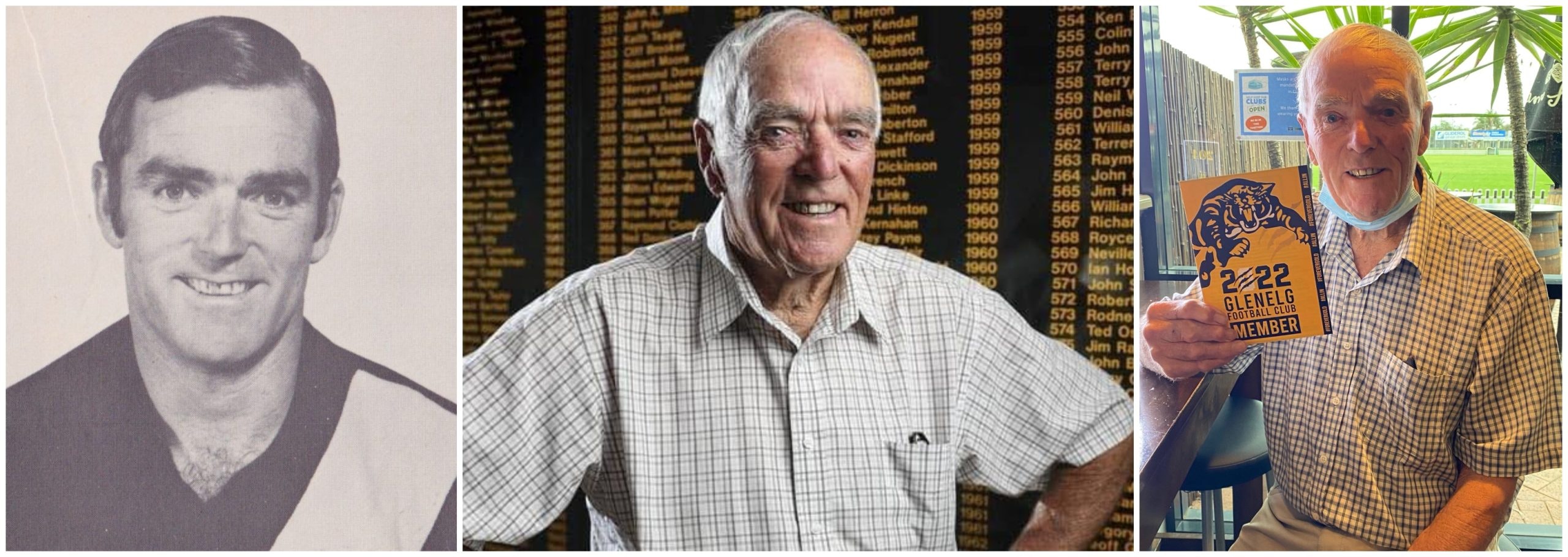
A VERY SPECIAL PERSON - a word from Peter Carey
Kerls had a huge influence on me personally, starting with the league side in 1971 as a 17 year old.
He had a significant impact on our club, improving us from an average club to one that was a side to be reckoned with in his years coaching at Glenelg.
He was a SA icon recognised across Australia. He made the SA v Vic clashes very special.
He was just a very special person who did so much for football in South Australia and Australia.
He was a real inspiration to me. I loved spending time with him and chatting about all things football.
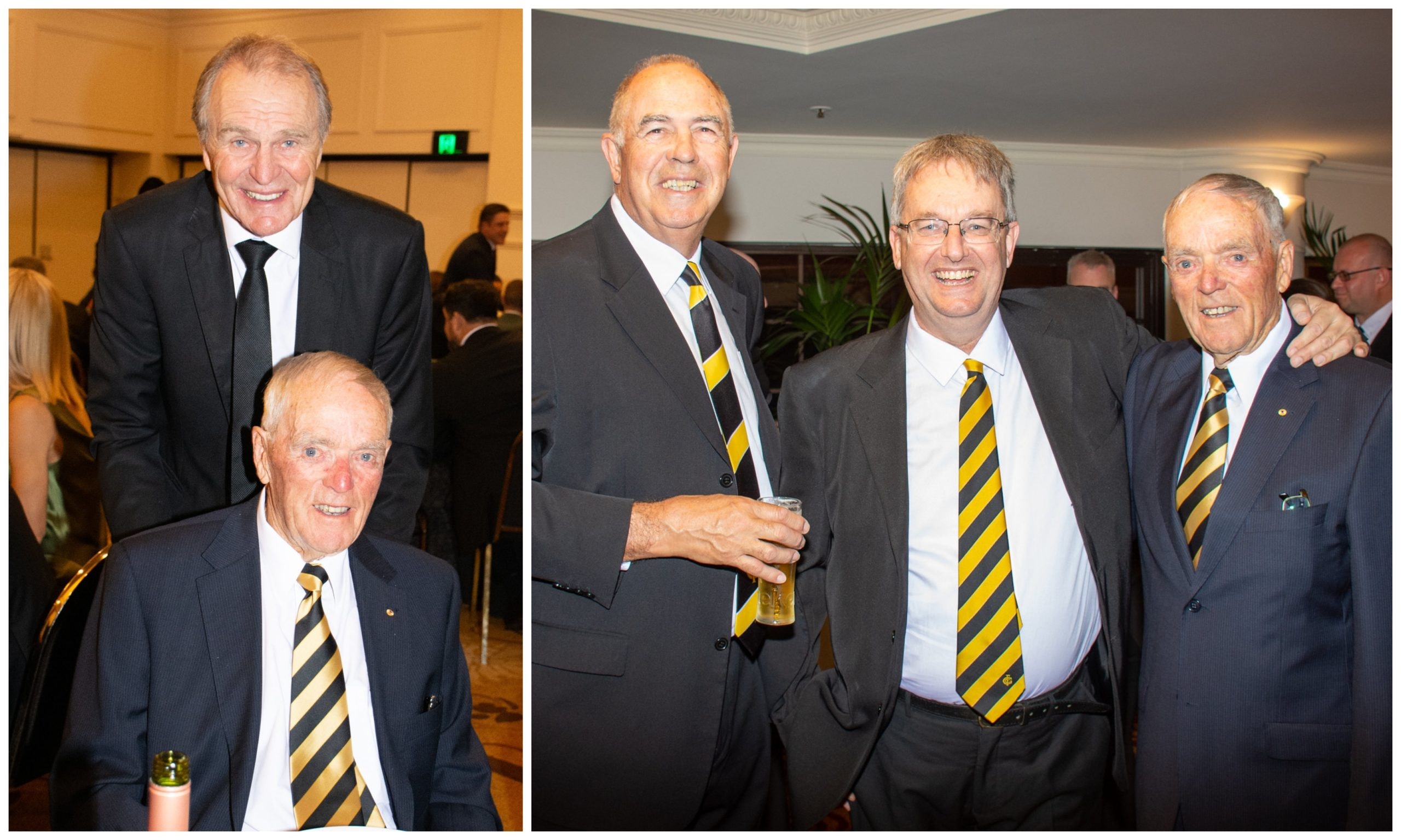
2021 GFC Hall of Fame Awards Night. L: Graham Cornes and Neil Kerley. R: Peter Carey, Peter Cornwall and Neil Kerley
Related News
-
 Club News
Club News2025 Hostplus SANFL League Second Semi Final Preview
-
 Club News
Club NewsLuck has Lachie land at the Bay for 100 games
-
 Team Selections
Team SelectionsSemi Final Team Selections | Season 2025
-
 Club News
Club NewsGlenelg Football Club sign Kiana Lee for Season 2026
-
 Club News
Club NewsGlenelg Football Club 2025 Online Auction
-
 Club News
Club NewsReeva’s Match Wrap | Qualifying Final
-
 Club News
Club NewsA Message From The CEO
-
 Team Selections
Team SelectionsQualifying Final Team Selections | Season 2025






























